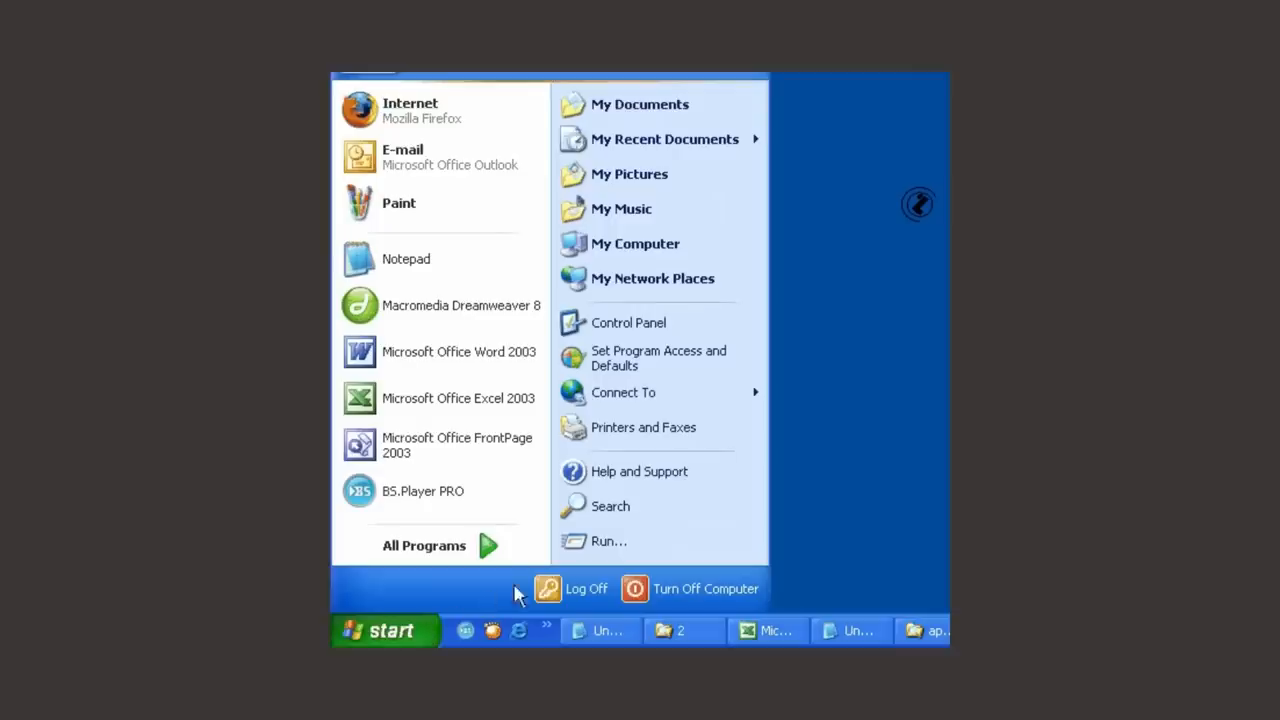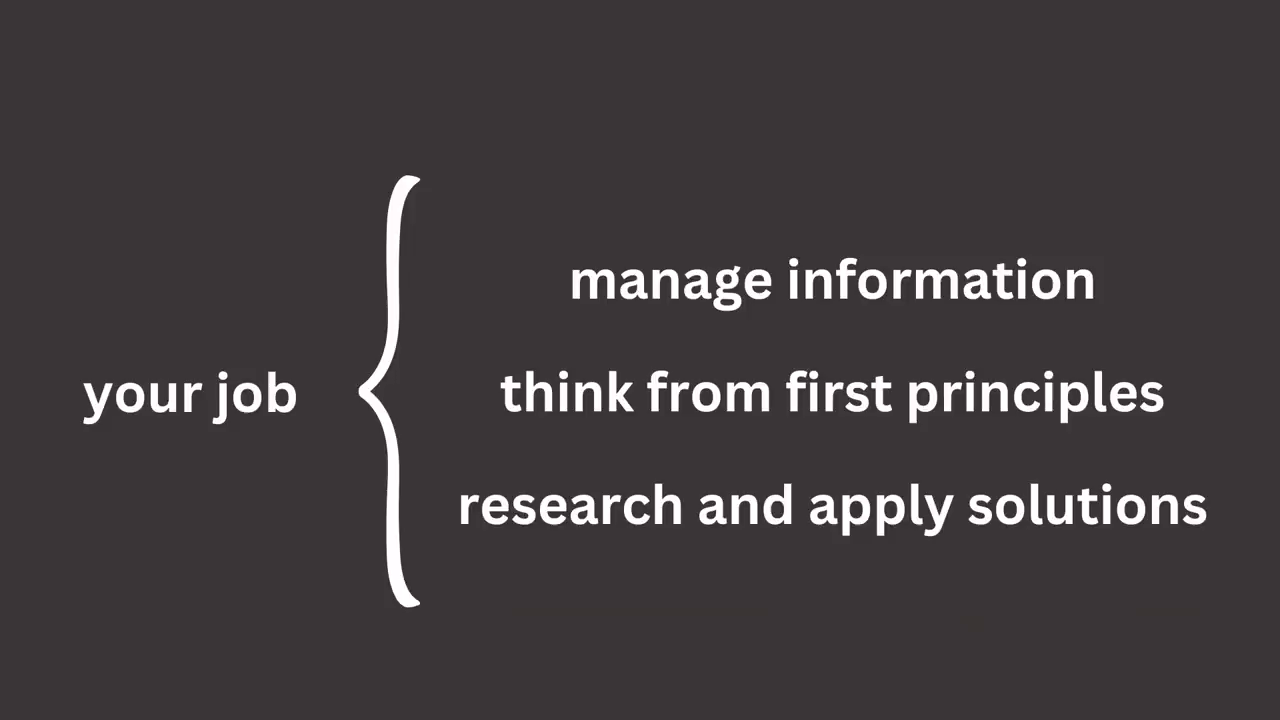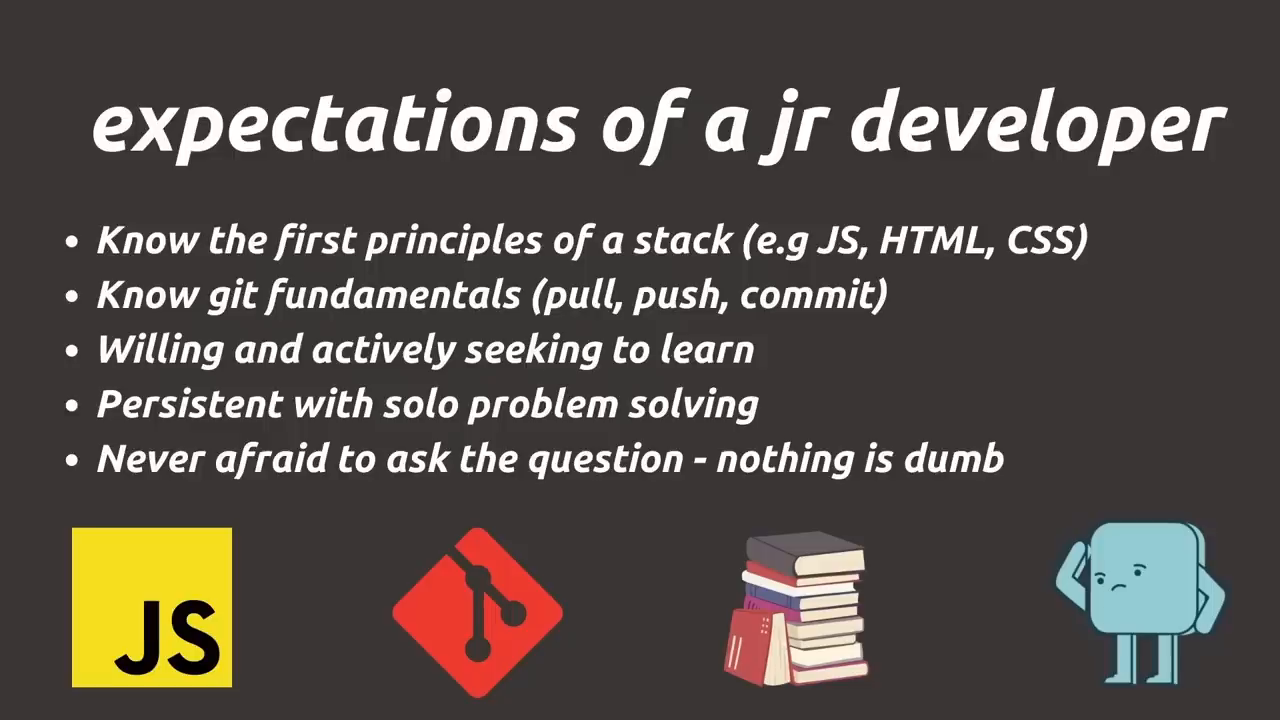Mindset changes for learning to code effectively
Learning to code is a journey many dream of starting but often encounter challenges along the way. The path to becoming a software developer isn't just about tutorials and picking the right programming language. It’s also heavily influenced by one’s mindset and approach to learning. In this article, we’ll explore some transformative mindset shifts that can dramatically improve the way you learn programming and develop yourself as a software engineer.
Whether you’re starting from scratch or have already ventured into coding, these principles can contribute to both your technical growth and personal development.
Focus on practice, not theory

Start of the video discussing the first mindset shift
The first and perhaps most important change in mindset is to focus on practice rather than theory. The speaker begins by sharing how they initially misinterpreted the "10,000-hour rule." The rule suggests that to master a skill, you need to dedicate 10,000 hours to it. As a beginner programmer, they thought this meant reading books, watching tutorials, and consuming as much theoretical information as possible in those hours. However, this was later discovered to be counterproductive.
Instead, they advocate for the "10,000 lines of code" approach. This mindset values coding and building projects over consuming passive information. By actively writing code, even if it's inefficient and prone to errors at first, you continuously improve. With every milestone — say, every thousandth line of code — your skills get sharper.
Coding, they argue, is a craft, more akin to woodworking, playing a musical instrument, or drawing than to studying dense informational fields like law or finance. Mastery comes through creating and refining, not simply memorizing concepts.
Furthermore, focusing on practice helps avoid the infamous trap of "tutorial hell." Tutorial hell occurs when learners endlessly follow tutorials without applying knowledge to real-world projects, leaving them ill-prepared to build independently. If this video hits a certain number of likes, the speaker promises to create a separate guide for escaping tutorial hell.
Ego is the enemy

Avoiding ego-driven decisions during the learning process
The next crucial mindset change is to recognize that ego is your enemy. When the speaker first started learning to code, their ego drove them to attempt ambitious projects like creating a Facebook clone or a Reddit clone. At the same time, they dismissed basic foundational projects, such as crafting simple HTML and CSS recipe websites. These seemed "beneath them"—their pride insisted they were ready for advanced topics.
This mindset was a stumbling block. They admit that if they had set their ego aside and started with the basics, they would have progressed much faster and become a competent developer in a shorter period of time. The foundational projects, while seemingly simple, are essential for understanding key principles and developing the skills needed for complex applications.
The lesson here is humility. As a beginner, accepting your current skill level is critical. Mastering the basics isn't just necessary—it's invaluable. That foundation enables you to tackle more complex problems with clarity and confidence.
Get comfortable with being uncomfortable

The necessity of becoming comfortable with uncertainty in programming
In software engineering, uncertainty is part of the territory. The mindset shift here is to embrace being uncomfortable and see it as part of the learning process, rather than an obstacle. The speaker emphasizes that as a professional developer, you’ll never know everything, and that's okay.
Your role as a developer is to be an "information manager." You may not have all the answers immediately, but you're expected to solve problems within your domain eventually. This often involves researching, testing, and finding solutions — a process that naturally includes moments of doubt or confusion.
Rather than resisting this discomfort, they suggest leaning into it. Consider each challenge as an opportunity to grow and learn something new. This mindset transforms the inevitable struggles of programming into an enjoyable part of the process. When you feel that sense of discomfort, it’s a sign that you’re pushing your boundaries, improving, and expanding your capabilities.
For example, when confronted with unfamiliar concepts or tasks, don’t let the initial confusion discourage you. Take it as an exciting opportunity to deepen your knowledge and expertise. This mindset shift not only makes the journey more enjoyable but also encourages resilience — a quality critical for any programmer.
You will never master programming
[No available image for this section at 357 seconds of the video.]
The final mindset shift discussed is the realization that you’ll never truly "master" programming. The speaker points out that aspiring developers, especially beginners, often fixate on the idea of "mastering" a language or concept before moving on. They may spend excessive time refining their understanding of a particular topic, such as CSS flexbox, before attempting to build something with it. This approach is flawed.
The better way to learn is iterative. Begin by learning the basics, then apply them in projects. For instance, when learning a new concept, like flexbox, instead of trying to understand every nuance upfront, use it in projects. With repeated application, your understanding deepens naturally over time. Programming is a craft, and mastery comes through consistent practice, experimentation, and iteration.
Importantly, when entering the industry, you’re not expected to be a "master." For junior developers, companies look for individuals with fundamental knowledge, a willingness to learn, and the perseverance to grow. Trying to "master" coding skills before applying for jobs is unnecessary and counterintuitive. The speaker reassures aspiring developers that the industry values adaptability and eagerness to learn over an exhaustive mastery of specific programming concepts.
Good developers, they emphasize, never stop learning. They embrace the iterative process: building projects, seeking feedback, and improving continuously. The pursuit of mastery is ongoing, and the journey itself is where the real growth lies.
Conclusion: Adopt the right mindset for coding success
The journey of learning to code isn’t a straight line—it’s filled with twists, turns, and occasional setbacks. However, adopting the right mindset can make all the difference in your success.
Key takeaways:
- Prioritize practice over theory: Focus on writing code and building projects instead of spending excessive time consuming passive content.
- Check your ego at the door: Start small and focus on foundational projects before tackling complex ones.
- Embrace discomfort: View confusion and challenges as opportunities for growth rather than as obstacles.
- Let go of the idea of mastery: Focus on continuous learning and building rather than fixating on perfecting concepts before taking action.
These mindset changes not only make learning programming more effective but also cultivate patience, persistence, and resilience — qualities that every great developer possesses. Whether you're just starting out or already in the trenches, applying these principles can supercharge your journey as a software developer.
Start small, stay humble, and remember: every line of code you write is a step closer to achieving your goals.
